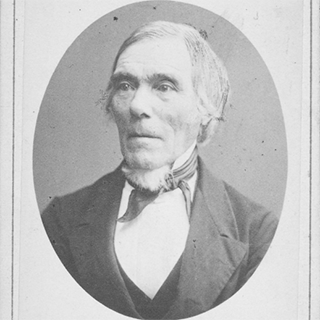From the “Kalevala” [Proem]
translated from the Karelian and the Finnish by John Martin Crawford
Mastered by desire impulsive.
By a mighty inward urging,
I am ready now for singing,
Ready to begin the chanting
Of our nation’s ancient folk-song
Handed down from by-gone ages.
In my month the words are melting,
From my lips the tones are gliding,
From my tongue they wish to hasten;
When my willing teeth are parted,
When my ready mouth is opened,
Songs of ancient wit and wisdom
Hasten from me not unwilling.
Golden friend, and dearest brother.
Brother dear of mine in childhood,
Come and sing with me the stories,
Come and chant with me the legends
Legends of the times forgotten,
Since we now are here together.
Come together from our roamings.
Seldom do we come for singing,
Seldom to the one, the other,
O’er this cold and cruel country,
O’er the poor soil of the Northland
Let us clasp our hands together
That we thus may best remember.
Join we now in merry singing,
Chant we now the oldest folk-hue,
That the dear ones all may hear them,
That the well-inclined may hear them.
Of this rising generation.
These are words in childhood taught me.
Songs preserved from distant ages,
Legends they that once were taken
From the belt of Wainamoinen,
From the forge of Ilraariuen,
From the sword of Kaukomieli,
From the bow of Youkahainen,
From the pastures of the Northland,
From the meads of Kalevala.
These my dear old father sang me
When at work with knife and hatchet;
These my tender mother taught me
When she twirled the flying spindle,
When a child upon the matting
By her feet I rolled and tumbled.
This poem is in the public domain. Published in Poem-a-Day on October 19, 2025, by the Academy of American Poets.
The Kalevala is a Finnish-language epic consisting of mythological ballads sourced from the folk poetry of Russian Karelia, Finland, and Ingria. Compiled in the nineteenth century by Elias Lönnrot, “Proem” is the first section of the compilation. About the Kalevala, in his essay “On ‘The Kalevala’ or Land of Heroes,” J. R. R. Tolkien, the English writer and philologist, writes, “Lönnrot was not the only collector, but it was to him that it occurred to string a selection into loosely connected form—as it would seem from the result with no small skill. He called it the Land of Heroes, Kalevala from Kaleva, the mythological ancestor of all the heroes. It consisted of twenty-five Runos (or Cantos): this was enlarged with new collected material to double, and published again in 1849, and almost immediately appeared in translation in other languages.” Upon awarding the Kalevala with the European Heritage Label in 2024, the European Commission wrote of the work, “The Kalevala is based on Karelian and Finnish oral traditions and is one of the most influential epics of the [nineteenth] century. While the Kalevala is a highly respected part of Karelian and Finnish cultural heritage, it also showcases the interchange and multi-layered nature of European cultures and identities.”

